Kids getting excited about science is a wonderful thing. Thanks to Geni McCallum – Marketing Manager and Community Educator at Science Alive! for answering our questions ahead of next week's Under 5 Science Fest. She also selected her top science books for kids.
There are Science Snippets in the library in ten of our libraries after school.

What are some of the events at Under 5 Fest you reckon will get the kids excited?
At our annual Under 5 Fest, kids get the chance to explore a wide range of hands-on science-based activities. You can pat farm animals; build in the construction zone; explore basic scientific principles; listen to stories; play with puppets, and much more. We have 15 brand new exhibits this year so there is bound to be something for everyone – it’s a week full of fun, chaos and adventure!
The construction zone is always one of our most popular areas, not only with the children but also with adults. What could be more fun than exploring engineering principles by building a giant house?! This year we’re featuring more blocks and activities and promising more opportunities for exploration and creativity.
Also new this year is the Nature Zone, especially for the budding biologists out there. Kids will be able to pretend they are a scientist in the field and examine and classify different objects, all the while learning about what makes New Zealand flora and fauna so unique.
More info can be found on our Facebook event or Science Alive
How can parents and caregivers help their kids get more into science?
The beauty of science is that it really is all around us, just waiting to be explored – there are ample opportunities in everyday situations to teach your kids about their world. Children (and adults!) often learn extremely well with hands-on activities. Often the teaching of science is simply about looking at the world from a scientific perspective, learning to think critically and asking lots of questions. People often forget that there is science within cooking, from raising dough (baking soda/powder chemistry reaction) to simmering a pasta sauce (evaporation), these are lessons just waiting to be taught!
As parents, we are asked questions constantly; it really is the brilliance (and sometimes the bane) of parenthood that you are their first and most important educator. Making a concerted effort to explain an answer, or delve into researching to find an answer with your kids creates a wonderful foundation for future learning. My daughter once asked me how bricks were made, I realised I hadn’t the foggiest idea and so I stopped what I was doing, we opened the laptop and looked it up online – it’s never too late to learn new things with your children.
And remember, it is not just about answering questions, but also asking them. How often do you stop and bounce a question back to your child? ‘What do you think?’ Getting your children to really think about what is happening and come up with their own explanations, however creative, is just as important as providing answers.
How does Science Snippets in the Library work? Are there some examples of kids who are having success from it?
After the earthquakes, our centre was no longer able to house the thousands of children we educate each year in our education programmes. It became clear that if we were to continue our ethos of teaching the community about science, we would have to turn to outreach programmes and venture out into the community on a regular basis. Our community team turned to teaching science topics within the libraries and thus, ‘Science Snippets in the Library’ was born.
My colleague and I travel to five different libraries each, covering ten Christchurch Libraries each week. We bring our own supplies and teach topics that cover Biology, Chemistry, Astronomy and Physics to kids from 5 to 10 years old. Each class runs from 3:30 - 4:30 pm and covers a lesson with plenty of discussion and question asking, and activities in which the kids can create something to take home with them. These free classes have proved to be very popular. We even have some volunteer helpers to aid with the bigger groups of kids, and we have many children who attend every week.
I believe that the success of our programmes is teaching that science is about doing, it’s not just in textbooks. We aim to foster the natural curiosity and excitement that children have at a young age. In the end, it doesn’t matter if they’ve learnt a fact they can relay off, it’s much more important to me that they associate science with fun, exploration and excitement. I brought a real monkey’s brain into class a week ago for our Brains topic; the amazement in the kids’ faces is what reminds me that this is what ‘Science Snippets in the Library’ is really all about.
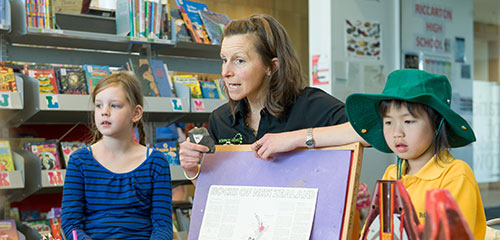
What do you think about libraries?
I have personally always loved libraries. From a young age they were my safe haven away from the rough politics of the playground – no matter what, the library was always there and my favourite books were just waiting to be read yet again. I strongly believe that a child’s first independent thoughts and opinions are collated through reading and collecting that breadth of book knowledge. It’s one of the only times that they are alone to think, question and discover of their own accord. Libraries give children the opportunity to do that in a safe and positive place.
In modern times, libraries have become so much more to the children and adults who are able to use facilities, which they may not have access to at home. They house knowledge that you can explore, no matter how old you are or how much money you have. They’re an inclusive community resource that is so important to so many. The digital access they provide is fantastic, but the real gems are found in the shelves and shelves of books. Next time you visit your local library, take a second to realise how lucky we are to have such an incredible resource within our neighbourhoods.
Thanks Geni and the Science Alive! team for their stellar work in bringing science to Christchurch kids!
See Geni’s list of top science books for kids.
Geni also recommends:
Splish! Splosh! Why Do We Wash?: Experiments in the Bathroom (4 yrs +).
A book full of illustrations, humour and kid-friendly experiments.
The Kingfisher Young Discoverers Encyclopaedia of Facts and Experiments (yrs 9 +)
A great resource book for science experiments, that are fun, safe and easy to create with everyday objects.
Are You a Snail? (4 yrs +) A simple picture book with attractive illustrations, to keep young kids engaged in the science of snails.


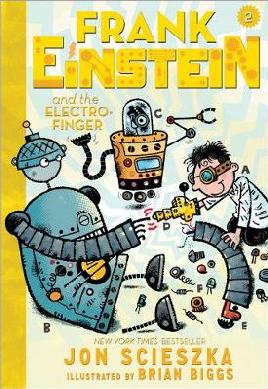
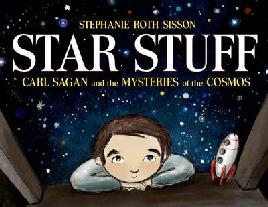
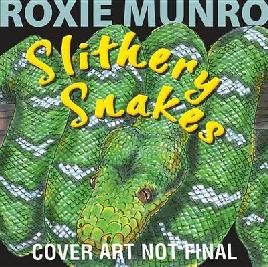
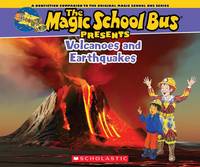

Add a comment to: “Science is about doing” – an interview with Geni McCallum of Science Alive!